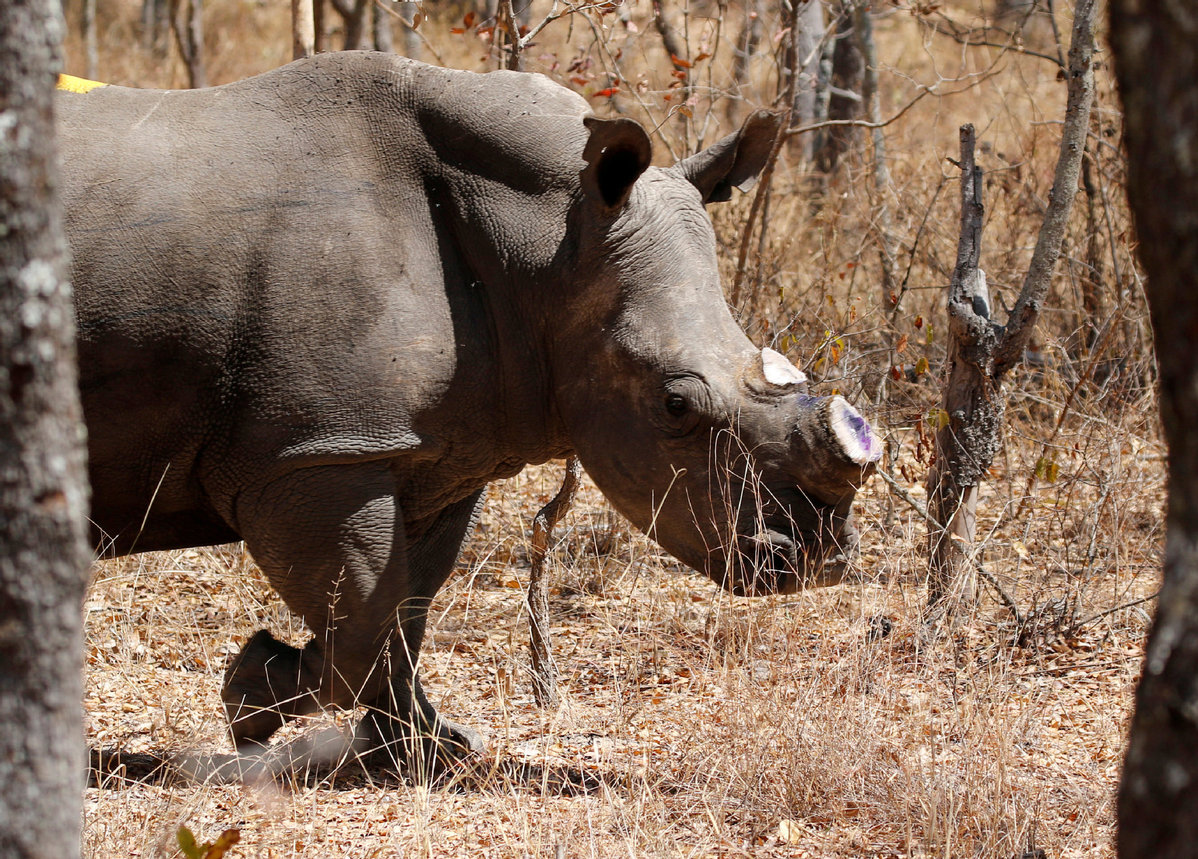Crackdown gains intensity on rhino, tiger trafficking


China is adding special focus to its effort to stop the illegal trade of products derived from rhinoceroses and tigers, according to the National Forestry and Grassland Administration on Thursday.
The action, which runs until the end of December, focuses on illegal hunting - shooting or poisoning the animal - and smuggling, purchasing, transporting, mailing or selling their byproducts, including through the internet, according to the administration.
The action is aimed at creating an atmosphere in society in which people will voluntarily resist trading in rhino or tiger parts after the campaign, it said.
The administration called for local Party committees and government entities to coordinate across multiple departments, including forest police, customs officers, market regulation authorities, transportation departments and cyberaffairs commissions to strengthen enforcement.
The administration stressed the importance of increasing public awareness shaping public opinion.
Administration spokesman Huang Caiyi said the central government has not changed its stance on wildlife protection and will not ease its crackdown on illegal trafficking and trade of rhino and tiger products, or other criminal activity.
The "three strict bans" will continue to be enforced, Huang said, including the use of rhino horns and tiger bones in medicines.
As a member of the Convention on International Trade in Endangered Species of Wild Fauna and Flora, China has long pursued traffickers of endangered wildlife, he said.
"The Chinese government has long been dedicated to the cause of wildlife protection and has made achievements recognized around the world," Huang said. "We have been consistent, active and firm in our stance."
The State Council released a circular on the control and use of such parts in October, saying that any transactions or uses must be approved by the government.
In November, State Council Executive Deputy Secretary-General Ding Xuedong was quoted by Xinhua News Agency as saying, in answer to a media question: "The circular should be implemented based on its detailed regulations for implementation."
Responding to public comments about the circular, China has temporarily postponed the enforcement of the rules.
- AI cracks the code for faster, better crops
- 'Hunted' official slid deeper into corruption
- Space schedule opens with two launches
- Winter cherry blossoms create unexpected spectacles
- Chongqing park becomes stage for captivating natural phenomenon
- Chongqing's cat theme park draws visitors, aids rescues





































